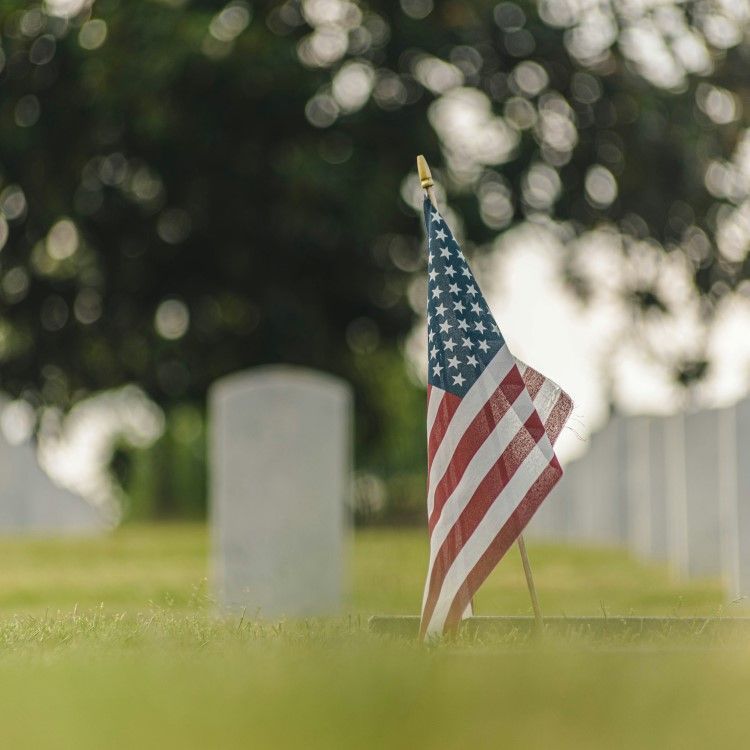The Trouble with Jesus
by Constance Hastings
The Trouble with Jesus:
No greater Love means laying down one’s life for friends.

Quiet now, please. Watch as they drive up the lane, wordlessly walk over the well-kept lawn to the tented area, chairs placed for figures in black, a sharp contrast to the opulent flowers arranged around the front side. A final journey commences. Escorted by uniformed comrades, the coffin is carried as the flag upon it ruffles slightly in the breeze. Once positioned, a pause fills the moment, waiting for the final tribute for the fallen.
“No greater love than this, to lay down one’s life for one’s friends.”
Gets you every time, and there have been too many times. The ultimate sacrifice we call it. A life that is no more so that others may continue in that life and have more.
Immense emotion, conflicted feelings, coupled with a blessed numbness float within those who are left. Yet, one greater question must not be spoken. Did this have to be?
Last Words
Those gathered in an upper room with Jesus in large respect were feeling and thinking the same. Jesus’ words are understood as an attempt to prepare his friends for what was to come, the laying down of his own life. He knew how in the last three years they weren’t altogether on board, had their own agendas for what their Rabbi should accomplish. Soon his own blood would be spilled out. On this night his words gush, knowing right now it wouldn’t make sense. Insight, new perspectives, revelation would come eventually. Then they would know, this had to be.
“I have loved you even as the Father has loved me. Remain in my love.” Last words they needed to get them through spoke of love. Yet were they able to know that love which Jesus expressed to them?
Love, not as sentiment, not as desire or need, not as a possession of one for the other. Love as the Father loved. But more. “Love each other in the same way that I love you.” The Father’s love for the Son is the love the Son has for them. Love is the binding force, not dependent on mere good vibes received but on mutual, concentric interconnections.
No Greater Love
Love otherwise then is lacking, not sufficient to contain or keep close that remaining, abiding relationship of deepest intimacy. What would follow is Jesus’ own example of this great love, laying down his life for another, for the world.
Did this have to be? Why a blood sacrifice, why go into this with eyes wide open for what would happen? Why, Oh God, did you not get him the heck out of there?
No greater love, he said. No other understanding, example, means of showing you the depth of divine love, the go-to-any-lengths kind of love Jesus so desperately wants for these before him. For by that love, they are seen and transformed from being disciples, followers of a Rabbi, ones who serve their master. “You are my friends if you obey me.” Friends of the deepest ilk and kin. Friends as they remain and abide in him. Friends as they live out this love of God and Son in life.
Love like this is sacrificial in the greatest sense, greater than understood by most. In all, not many comparatively are called to lose their lives for others. When it happens, on the battlefield, the streets, by heroic actions of first responders, we bow our heads in gratefulness for their ultimate sacrifice. Still, just as grateful are we that it is not us, not ours.
Yet, Jesus said, no greater love entails laying down one’s life. To do so, in love, is to daily relinquish an identity centered on one’s own needs, the right to one’s self, in exchange for humble service of others.God knows, as do we, if we gave up our physical lives all the time, there’d be no one left among the few who might join up. Yet, this kind of love, sacrificial love, love that lays one’s life down for others in daily actions comes from hearts which remain, abide, and live out Love.
Need an easy example? In a couple of weeks is Mother’s Day. For all the human failings of mothers, there also is the giving of life and love for one’s children or those to whom one is like a mother. But don’t reduce love to a hallmark sentiment wrapped in a one-day, pink-ribboned flower bouquet.
Closer to the point, to Love fully is to examine what one does in relationships not because one feels like it, wants to do it, enjoys seeing the other pleased by it. It’s the stand-alongside-another love even when one’s own emotional center is empty, drained, just-not-feeling-it. The decision to Love like this is a laying down of one’s life when the prospect of getting one’s needs met in it seem dim.
Does This Have to Be?
“I command you to love each other,” he said. If love is only following orders, how can it be love? Hear this as not a rigid directive but more as a plea in its strongest form. Jesus did this to show that it does have to be. Love each other, he said, “so that you will be filled with my joy. Yes, your joy will overflow!”
To love then as Jesus loves, as God loves, is to love each other. In this, that interconnected, intimate binding of one to the other is a joy not otherwise known, not possible in the expectations of personal desire focused on oneself. It’s a learned art but found in the most characteristic activity of God.
Filled with Joy
Yes, joy but it’s his kind of joy. To act decisively, sacrificially, purposely in a love that doesn’t seek its own satisfaction is not an artificial love that seeks its own ends or sinks to manipulation, even abuse. Its mutuality instead produces a transformative Love, each becoming greater in Love to the other.
To be lifted out of oneself to become a creature of Love is its purpose and brings joy. For this then, the no greater Love of Jesus has to be.
Named 2024 Notable Book Award by Southern Christian Writers Conference!
The Trouble with Jesus: Considerations Before You Walk Away by Constance Hastings
Ask for it wherever you buy your books,
but don’t forget you can support local bookstores Here.
Subscribe to The Trouble with Jesus Blog Here.















